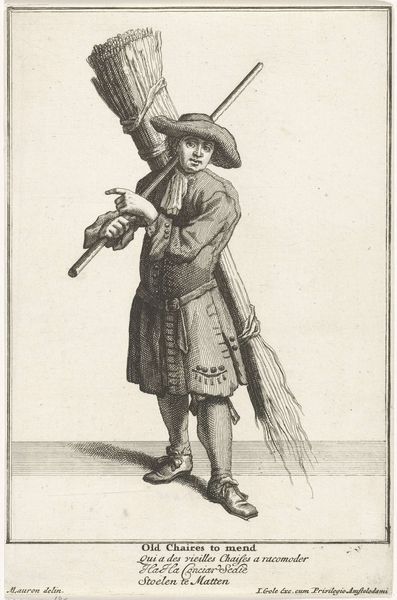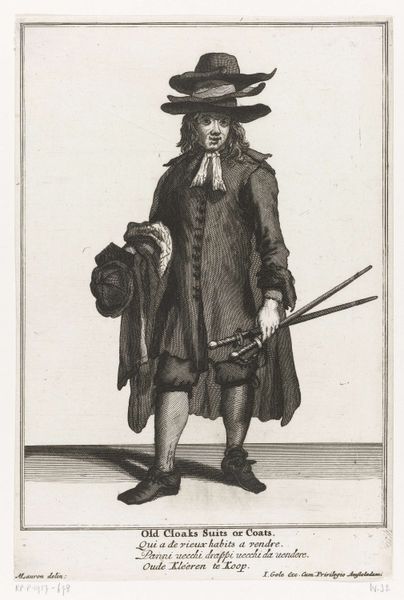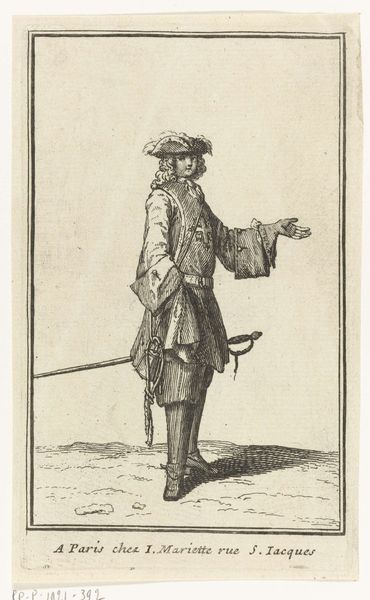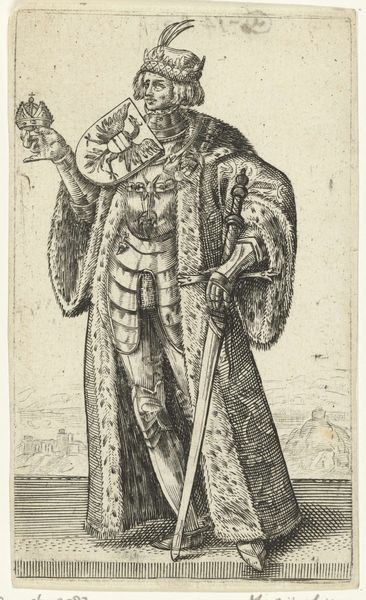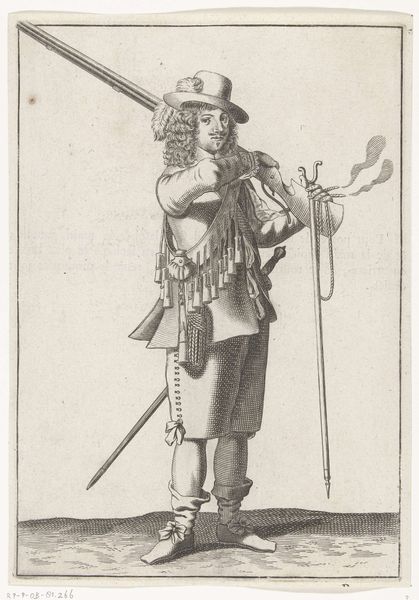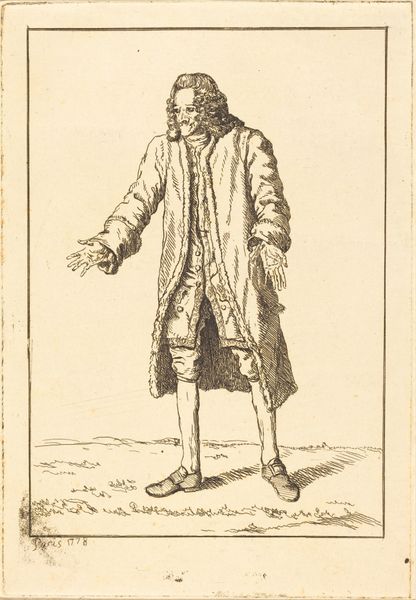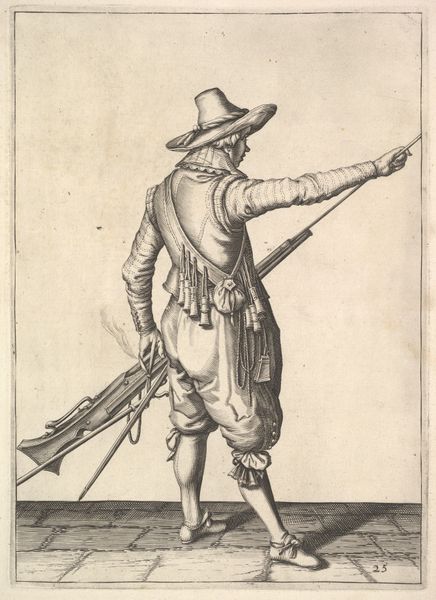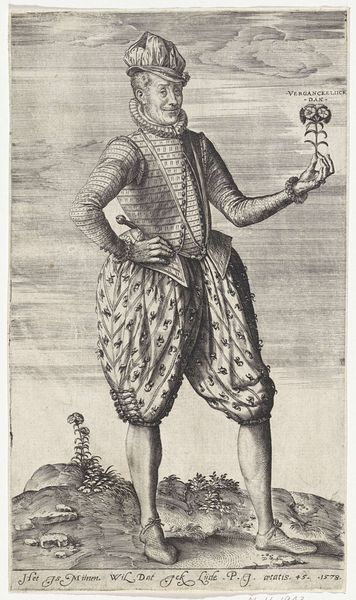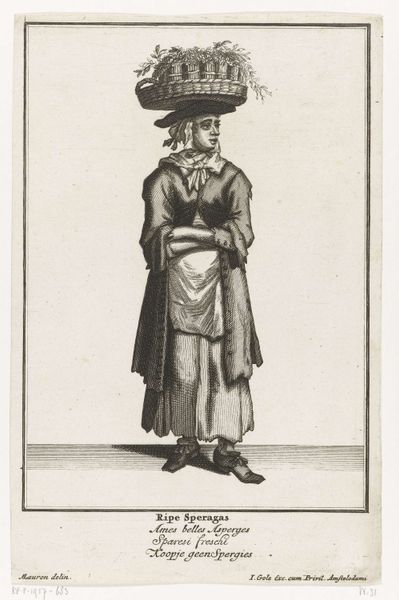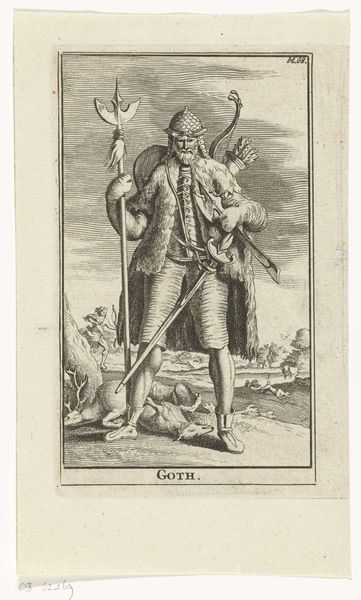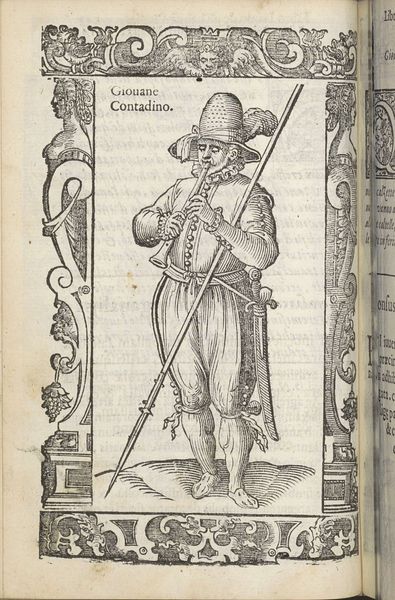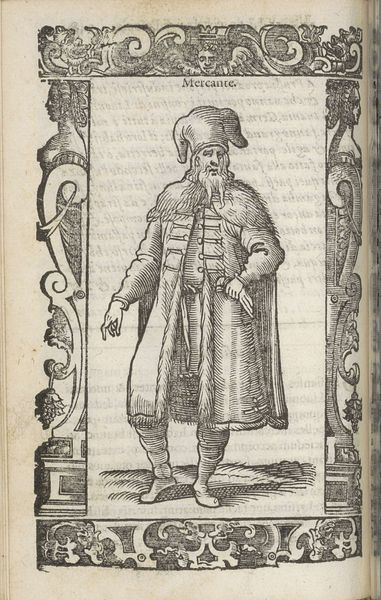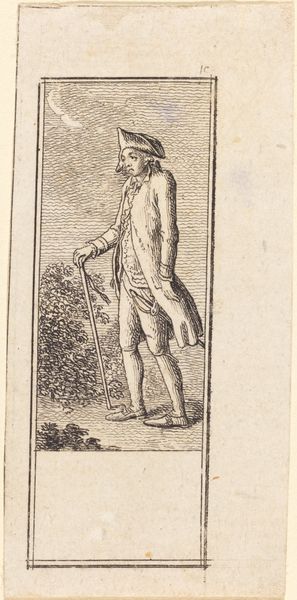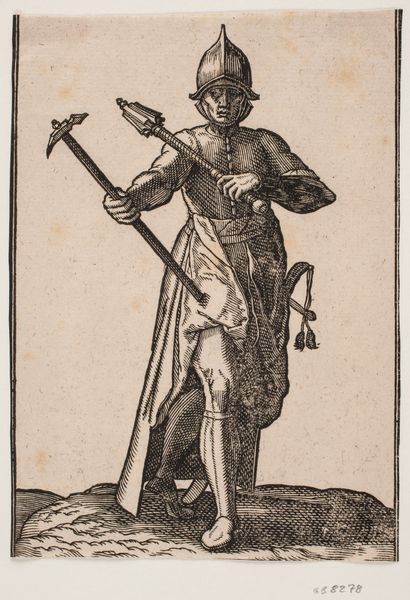
print, engraving
#
portrait
# print
#
old engraving style
#
mannerism
#
history-painting
#
academic-art
#
engraving
Dimensions: height 163 mm, width 93 mm
Copyright: Rijks Museum: Open Domain
This is Pieter Feddes van Harlingen's portrait of Philip II of Spain, made with etching. The incised lines describe the opulence of the king's garments, the weight of the ermine fur, and the ornamentation on the royal scepter. But the real story here is how the artist made the print, and how it would have been received by its audience. Etching is an indirect process, a close cousin of engraving. An image is first drawn into a wax ground laid on a metal plate, which is then bathed in acid. This eats away at the exposed lines, which are then filled with ink and printed. The multiplication of imagery through printmaking created a wider audience for this portrait, which had implications for labor, politics, and consumption, reaching beyond the traditional boundaries of fine art. It's important to consider materials, making, and context to fully appreciate this artwork.
Comments
No comments
Be the first to comment and join the conversation on the ultimate creative platform.
